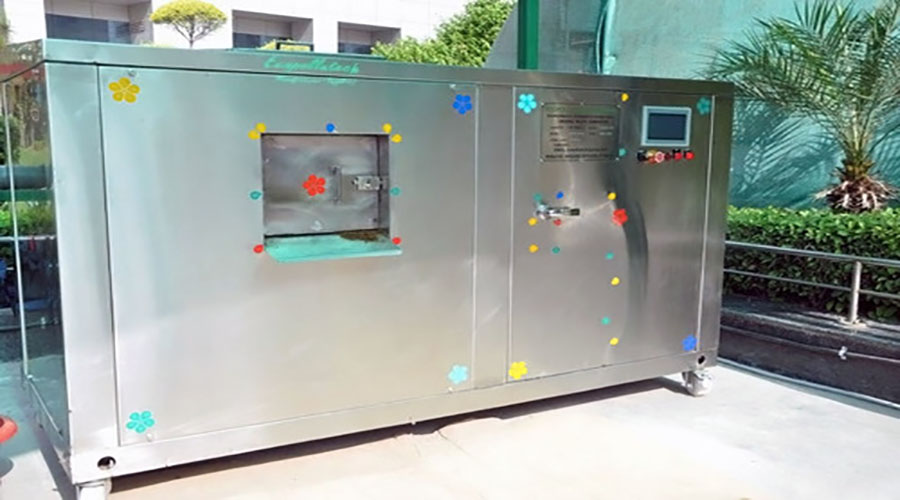Organic Waste Composters
Organic Waste Composters (OWC)
Organic Waste Composters (OWCs) represent a significant advancement in sustainable waste management, offering an efficient method to transform organic waste into valuable compost. These innovative systems harness the power of aerobic microorganisms within controlled environments to decompose materials like food scraps, garden waste, and agricultural residues. This natural breakdown process yields a nutrient-rich compost, a beneficial soil amendment.
OWCs are engineered with insulated chambers that maintain optimal temperature and moisture levels, which are crucial factors in accelerating the composting process. This controlled environment also plays a key role in minimizing unpleasant odours and reducing the emission of harmful greenhouse gases. By providing an alternative to landfills and incinerators for organic waste disposal, OWCs actively mitigate environmental pollution and foster circular economy principles by creating a sustainable resource for soil enrichment.
Why Select Hydroflux Engineering for OWCs?
Opt for Hydroflux Engineering due to our profound expertise in pioneering organic waste composting technology. We deliver customizable OWC solutions designed for diverse scales, ensuring efficient organic waste diversion and the production of high-quality, nutrient-rich compost tailored to your specific needs.
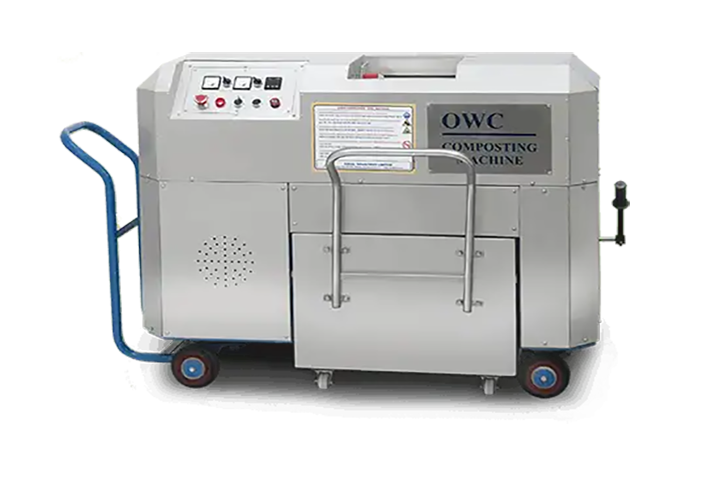
Our Strengths:
Our unwavering commitment to sustainability underscores our approach, providing environmentally responsible and economically sound waste management solutions.
- Quality of Services: Reliable manufacturing and dedicated customer support.
- Cost Effective: Economical and sustainable waste management options provided.
- Tailored Solutions: Customized OWC systems to meet specific requirements.
- Quality of Services: Reliable manufacturing and dedicated customer support.
How Does a Water Organic Waste Composter (OWC) Function?
The operational cycle of a Water Organic Waste Composter (OWC) commences with the collection and introduction of organic waste, such as food scraps and garden refuse, into the composter unit. Inside the OWC, a carefully regulated aerobic decomposition process occurs, driven by a diverse community of microorganisms.
These microorganisms actively break down the complex organic matter, and in doing so, they naturally generate heat. The insulated construction of the composter plays a crucial role in retaining this heat and maintaining ideal environmental conditions, specifically temperature and moisture, which are essential for optimal microbial activity and efficient decomposition.
As this process continues, the initial organic waste materials are gradually transformed into valuable, nutrient-rich compost. This resulting compost can be readily used as a beneficial soil amendment in various applications, including gardening, landscaping, and agriculture, fostering sustainability and promoting circular waste management principles.
How Can We Assist with Your Water Organic Waste Composter (OWC) Needs?
We offer complete support for your Organic Waste Composter (OWC) requirements, starting with in-depth consultations to fully grasp your unique needs and any limitations you might have. Our goal is to ensure we find the perfect composting solution for you.
To achieve this, we provide a diverse selection of OWC models, each with different capacities and employing various composting technologies. This wide range guarantees we can match the ideal composter to your specific application, considering factors like available space, the volume of organic waste you generate, and the desired quality of the final compost product. Our expert team will guide you through the technology selection process.
Furthermore, our services extend beyond just providing the OWC unit. We also offer comprehensive installation support and thorough training on operating and maintaining your composter effectively. Beyond the initial setup, we are committed to providing ongoing assistance, ensuring a smooth integration of the OWC into your waste management practices, guaranteeing its optimal performance in the long run, and helping you meet your sustainability goals efficiently.
What Are the Different Technologies Used in Organic Waste Composters (OWCs)?
Here are various technologies employed by Organic Waste Composters to efficiently transform organic waste into compost:
- Aerated Static Pile Composting: This method uses perforated pipes or dedicated aeration systems to force air into the compost pile. This introduction of oxygen significantly promotes aerobic decomposition, leading to a faster composting process.
- In-Vessel Composting: Organic waste is enclosed within sealed vessels or rotating drums. This containment allows precise control over crucial decomposition parameters, including temperature, moisture levels, and aeration, optimizing the composting environment.
- Vermicomposting: This technology harnesses the power of earthworms to break down organic waste. The worms accelerate decomposition and produce vermicompost, a highly valuable soil amendment known for its rich microbial content and excellent soil conditioning properties.
- Bokashi Composting: This unique method ferments organic waste using a specific set of beneficial microorganisms, typically in an anaerobic (oxygen-deprived) environment. The result is a pre-composted material that requires further composting or direct burial in the soil to complete the process.
- Windrow Composting: This technique involves arranging organic waste in elongated, narrow piles called windrows. These windrows are periodically turned or aerated to ensure proper decomposition and maintain microbial activity.
Each of these technologies presents distinct advantages and is best suited for different scales of operation, types of organic waste being processed, and specific operational preferences, offering a diverse range of options for effective organic waste management
Frequently Asked Questions (FAQ)
Our Clients Testimonials
Our clients consistently commend our high-quality manufacturing and the effectiveness of our wastewater treatment services, encompassing STP, ETP, WTP, Industrial RO, Softener, OWC, and more, delivering exceptional results.
Hydroflux provided an STP system for one of our large residential projects. The plant has been running smoothly, and we’re reusing treated water for landscaping and flushing. Their team did an excellent job with installation and support.

Ravi Sharma
L&T ConstructionAt our telecom office site, Hydroflux installed a compact RO + WTP system. The system is low-maintenance, efficient, and gives us good water quality. They handled the project professionally.

Rajeev Arora
Airtel Facility TeamHydroflux installed a wastewater treatment system for our manufacturing unit. The plant works as per industrial discharge norms. Their timely service and AMC support have been great.

Meenal Kapoor
Samsung ElectronicsWe required an industrial ETP with a ZLD setup. Hydroflux delivered exactly what we needed. Their design is robust and helps us recycle water back into our process lines.
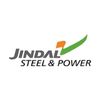
Anil Deswal
Jindal Steel & PowerOur university uses Hydroflux STP to manage sewage within the campus. The treated water is used for gardening, and the plant is eco-friendly. Their technical team is cooperative and trained our staff well.

Dr. Aftab Khan
Jamia Hamdard UniversityWe used Hydroflux for WTP system installation at one of our metro depots. The water treatment system is reliable and easy to maintain. Their service team is always on time.

Sandeep Malhotra
Delhi Metro Rail Corporation (DMRC)We use Hydroflux’s STP and ZLD solution at our bottling plant. Water reuse and discharge quality have both improved. Their ZLD setup helped us clear compliance smoothly.

Vikram Joshi
Pepsi Bottling Unit (Jai Beverages)We installed a RO plant at our Sikandrabad tiles factory. The system provides consistent water quality for tile processing. Very effective and energy-efficient.

Sanjay Singh
Kajaria CeramicsHydroflux installed a compact STP system at our food production plant. Treated water is reused for utility and cleaning. The system is easy to run and completely odorless.
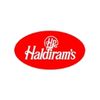
Poonam Verma
Haldiram’s Production UnitOur Gurgaon residential projects have Hydroflux’s STPs. They help us recycle and reuse water, which supports our green building certifications. We’re satisfied with their support even after handover.
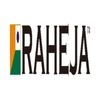
Meena Rathi
Raheja DevelopersHydroflux delivered a 690 KLD STP plant for our township. The plant runs automatically and treats large volumes efficiently. It’s been a valuable addition to our sustainability goals.

Ritesh Goyal
Omaxe LtdWe installed an STP from Hydroflux for our resort. Water from bathrooms and kitchen is now treated and reused in our gardens. The plant is silent and blends into our eco-friendly theme.

Arjun Mehta
Best Western ResortHydroflux installed a small but high-efficiency ETP at our Manesar unit. We’ve had no major issues and water discharge is always within limit. Their service is quick and professional.
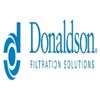
Priti Sharma
Donaldson India Filter SystemsWe’re using Hydroflux’s STP in our hotel’s backend operations. The system helps us recycle greywater for flushing. Their setup is clean, quiet, and very effective.

Ramesh Yadav
Radisson HotelsHydroflux supplied a robust ETP system for our Bokaro cement plant. It handles high loads and treats effluent effectively. We’ve seen a clear improvement in compliance and water reuse.

Alok Sharma
Dalmia Bharat CementWe installed a compact RO + WTP setup at our Manesar unit through Hydroflux. It runs quietly and requires very little manual handling. The system is reliable and consistent in water output.

Tanya Mehra
BRADY Company India Pvt LtdHydroflux provided an automated ETP solution at our Vapi facility. The system helps us recycle water and control our wastewater discharge. Their service support is excellent even post-installation.

Ritu Jain
HAVELLS IndiaAt our printing unit, Hydroflux installed a RO plant to ensure water quality for ink processing. The plant has reduced scale issues and improved equipment life. It was a great decision to go with them.

Saurabh Chawla
Dainik BhaskarHydroflux provided an MBR-based STP for our Gurgaon campus. The treated water is clear and odorless, perfect for reuse. We are happy with their engineering and service quality.


